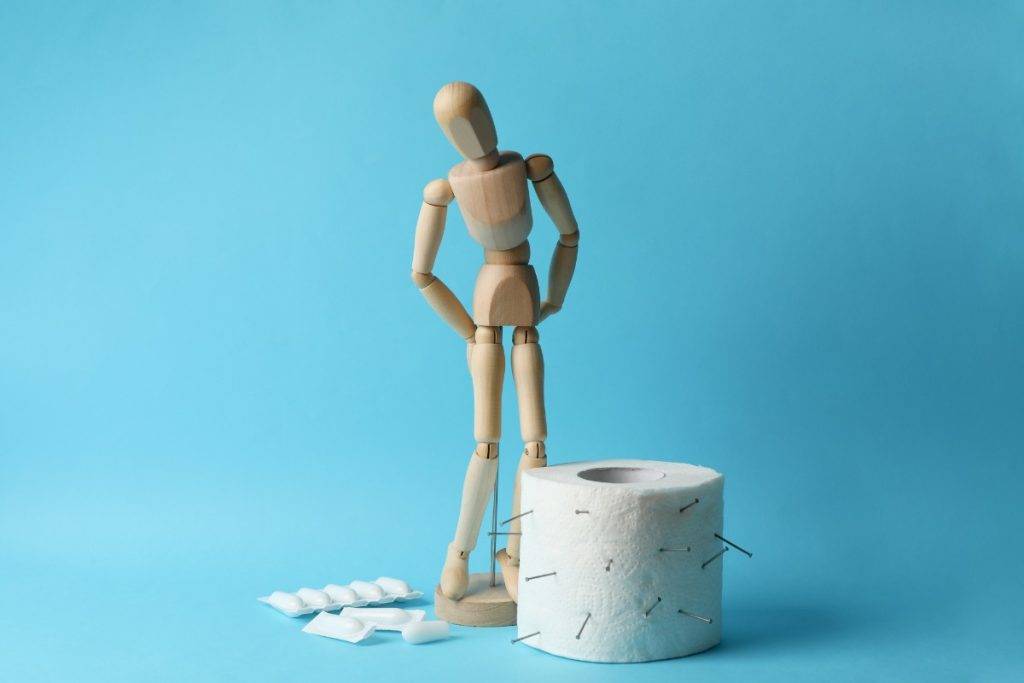Fistula occurs when the perianal skin (skin around the anal region) forms an abnormal connection with the surface of the anal canal.
An anal fistula develops when an anal abscess bursts before it is treated or is not completely cured. An anal abscess is a painful pus-filled lesion caused by a bacterial infection in the tissues surrounding the anus.
Surgery is often needed to treat anal fistulas as they do not usually heal by themselves.
The most common types of fistulas in Crohn’s disease patients form between two parts of the intestine, between the intestine and another organ, such as the bladder or vagina, or through to the skin surface. Women with Crohn’s disease can also develop a fistula between the anal area and vagina, which may be difficult to treat. Surgical treatment depends on individual circumstances.
Fistulas sound scary, but they are treatable. About 35 to 50 percent of adults with Crohn’s disease will develop a fistula at some point.
Most fistulas are caused by an infection that starts in an anal canal gland. The infection results in an abscess that drains on its own or is drained surgically through the skin next to the anus. A fistula is a tunnel that forms under the skin along this drainage tract. The tunnel connects the anal canal gland to a hole in the outside skin around the anal area.
Rings of sphincter muscle at the opening of the anus allow you to control the release of stool. Fistulas are classified by their involvement of these sphincter muscles. This classification helps the surgeon determine treatment options.
Symptoms of Anal Fistula:
Symptoms of a fistula can include:
This is the most common and effective surgical operation used to drain and open an anal fistula.
The primary goal of a fistulotomy is to remove all the pus and fluids in the affected area or tissues. This helps them heal faster and helps close the abnormal gap. The surgery also helps reduces injury to the anal sphincter.
For larger fistulas that are deep into the tissues, other options are available. The doctor can use an additional procedure known as sphincteroplasty to treat the sphincter after performing a fistulotomy. This process is more complex.
This procedure involves inserting the surgical thread into the fistula tract, allowing it to entirely drain and heal. This allows it to drain and helps it heal, while avoiding the need to cut the sphincter muscles.
The ligation of the intersphincteric fistula tract (LIFT) procedure is a treatment for fistulas that pass through the anal sphincter muscles, where a fistulotomy would be too risky. During the treatment, a cut is made in the skin above the fistula and the sphincter muscles are moved apart. The fistula is then sealed at both ends and cut open so it lies flat. It is also used in conjunction with Laser Surgery

Radially emitting laser fibre treatment involves using a small laser beam to seal the fistula.
For comprehensive Fistula surgical treatment in Malad or its vicinity, consider scheduling an appointment with the esteemed Dr. Pradeep Shriyan. Distinguished as a senior laparoscopic, general, and gastrointestinal surgeon in the Mumbai Suburban region, Dr. Shriyan’s expertise lies in the specialized field of laparoscopic surgery.
Ensure your Fistula surgical treatment is in the hands of an accomplished professional by securing an appointment with Dr. Pradeep Shriyan in Goregaon today.
• Have nothing to eat or drink 6 Hours before surgery except for prescribed medications you have been told to take with a sip of water.
• Report 2 hours before the Surgery time (OT Procedure)
• Carry Doctor’s Case Paper on which treatment is written at the time of Admission to Hospital
• Carry Insurance Documents with you to the Hospital before Admission
• Do not apply any lotions, perfumes, deodorants, or Nail polish before surgery
• Take off your jewellery including earrings and piercings
• Don’t shave the area, this will be taken care by Hospital nurse
1. Take pain relieving and other medications as advised. Pain-relieving medication should be taken with food.
2. Follow-up with the doctor after a period of 10 days.
3. Eat a healthy diet and drink plenty of non-alcoholic and non-caffeinated drinks.
4. Do not operate any machinery, or lift any heavy articles after Surgery
5. Rest for a few days after the surgery is advisable, but keep mobile.
6. It is normal to have some bleeding after surgery, but if a significant amount runs down the leg, a doctor should be informed immediately.
7. Warm sitz baths may also help to reduce pain following surgery.
8. It is critical to stay hydrated and maintain a high-fibre diet in order to have easy and painless bowel movements
Please consult doctor immediately if you experience any of the following symptoms:
• Large amount of swelling under the wound • Foul odour from operated area • Fever greater than 38.0 degrees C.
Developed by PRAZONE Web Solutions
Copyright © 2024 All rights reserved by
Dr Pradeep Shriyan